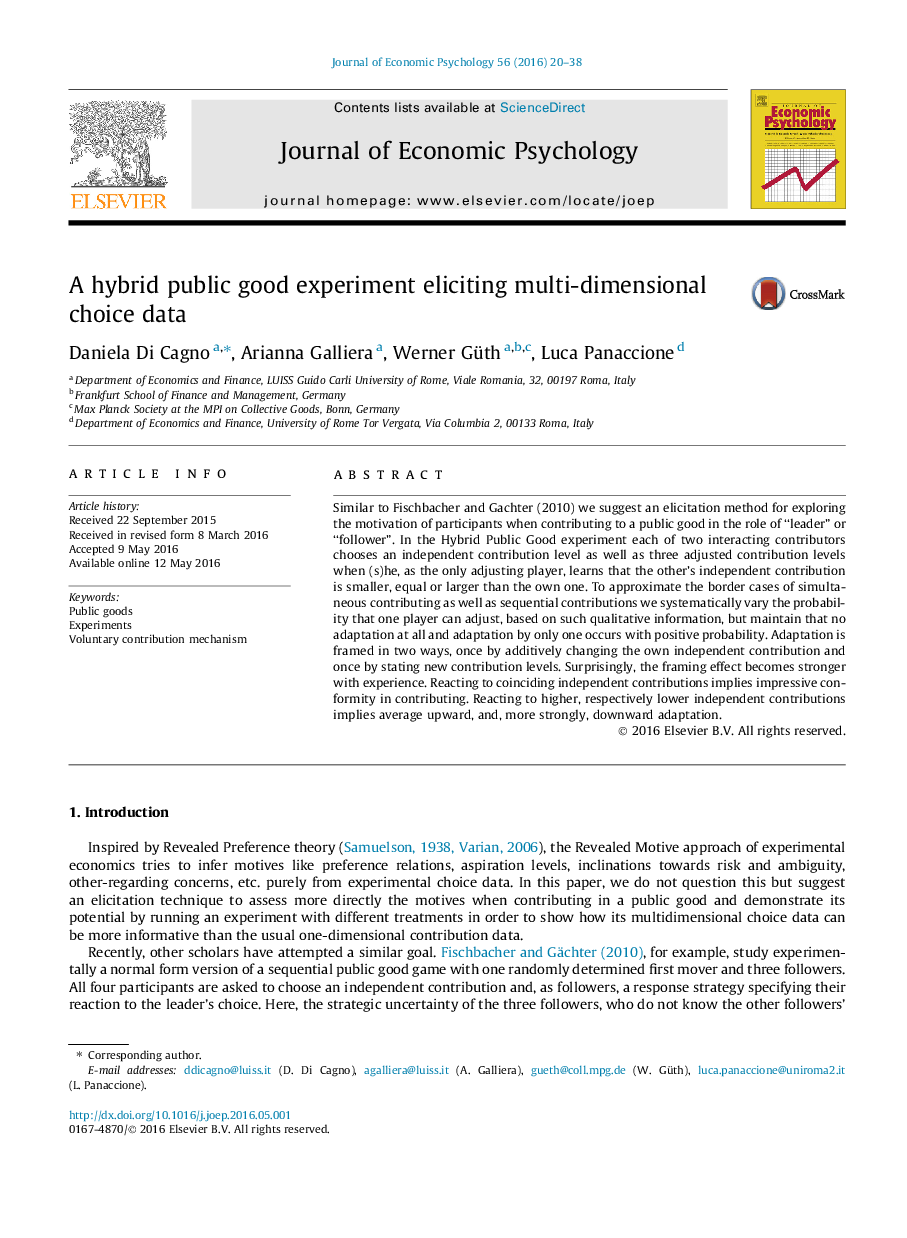| Article ID | Journal | Published Year | Pages | File Type |
|---|---|---|---|---|
| 7244188 | Journal of Economic Psychology | 2016 | 19 Pages |
Abstract
Similar to Fischbacher and Gachter (2010) we suggest an elicitation method for exploring the motivation of participants when contributing to a public good in the role of “leader” or “follower”. In the Hybrid Public Good experiment each of two interacting contributors chooses an independent contribution level as well as three adjusted contribution levels when (s)he, as the only adjusting player, learns that the other's independent contribution is smaller, equal or larger than the own one. To approximate the border cases of simultaneous contributing as well as sequential contributions we systematically vary the probability that one player can adjust, based on such qualitative information, but maintain that no adaptation at all and adaptation by only one occurs with positive probability. Adaptation is framed in two ways, once by additively changing the own independent contribution and once by stating new contribution levels. Surprisingly, the framing effect becomes stronger with experience. Reacting to coinciding independent contributions implies impressive conformity in contributing. Reacting to higher, respectively lower independent contributions implies average upward, and, more strongly, downward adaptation.
Related Topics
Social Sciences and Humanities
Business, Management and Accounting
Marketing
Authors
Daniela Di Cagno, Arianna Galliera, Werner Güth, Luca Panaccione,
